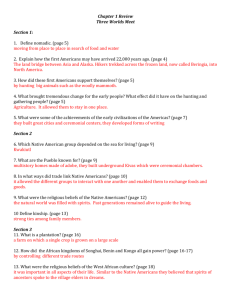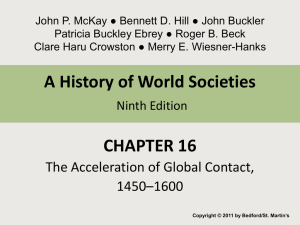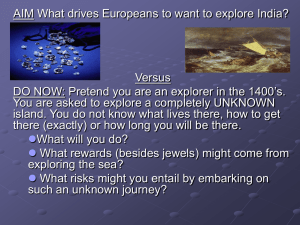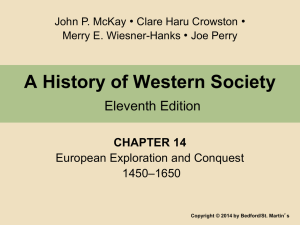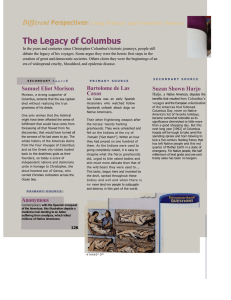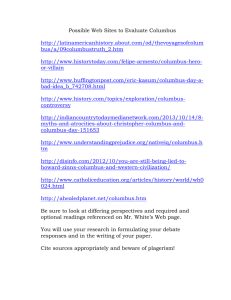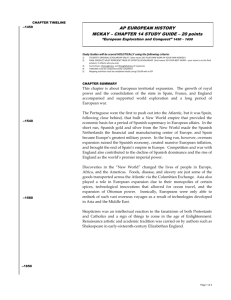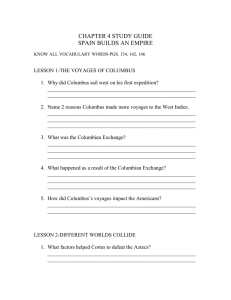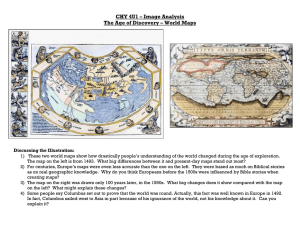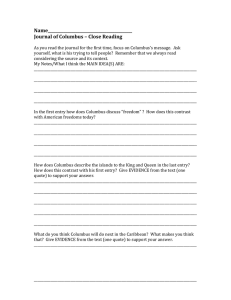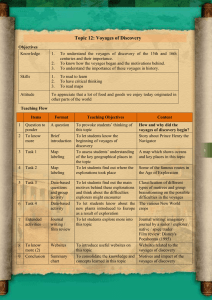Gold, God, Glory
advertisement
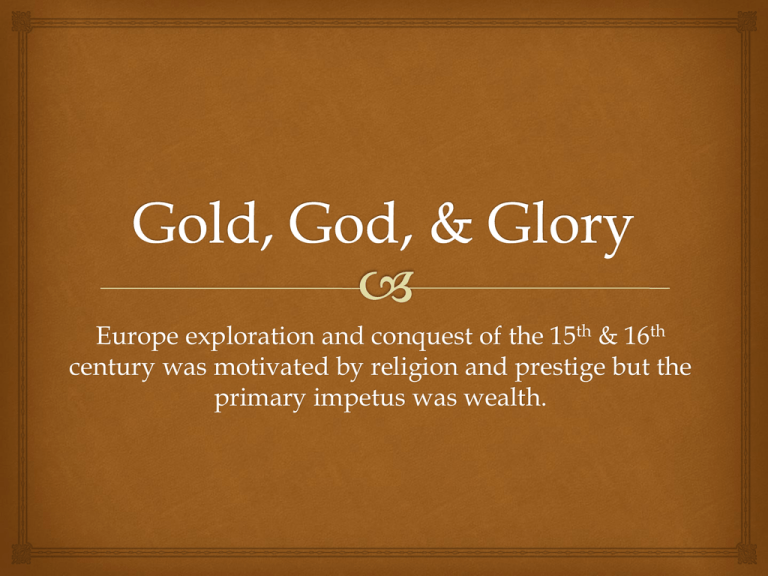
Europe exploration and conquest of the 15th & 16th century was motivated by religion and prestige but the primary impetus was wealth. Portugal Evidence England Prince Henry the Navigator Bartholomew Diaz Vasco de Gama Cabral Spain Columbus Magellan Balboa Cortes Pizarro Cabot Drake France Verrazano Cartier Champlain Gold: Primary motive The chief reason for the voyages were a search fro new trading routes to the east Columbus was promised 10% of all material wealth he took for Spain Columbus changed route from going north to the court of Genghis Khan to a southern route where gold was promised. The chief reasons for the voyages were a search fro new trading routes after the cutoff of trade with the East, including the slave trade after the Ottoman conquest of Constantinople. Native populations were treated with disdain and brutality in efforts to obtain riches. The encomienda system was established to turn the Amerindians into forced laborers. African slave trade began soon after the first contact with the new World and provided huge profits for European trades, as did the sugar plantations where the slaves worked. God Columbus was a deeply religious man, believed God promoted his voyages, and delighted in the possible conversion of natives. Missionaries were among the earliest settlers. Most of the native population converted to Christianity. The Muslim dominance of world trade was a major reason for the search for new trading routes. Glory The motive of glory reflects the Renaissance values of individualism and fame seeking. Renaissance humanism and interest in technology and geography, combined with individual egoism, encouraged men to become explorers, conquerors, and settlers. After the Age of Exploration began, a desire for national glory, prestige, and power fueled further explorations and expansion of empires.
